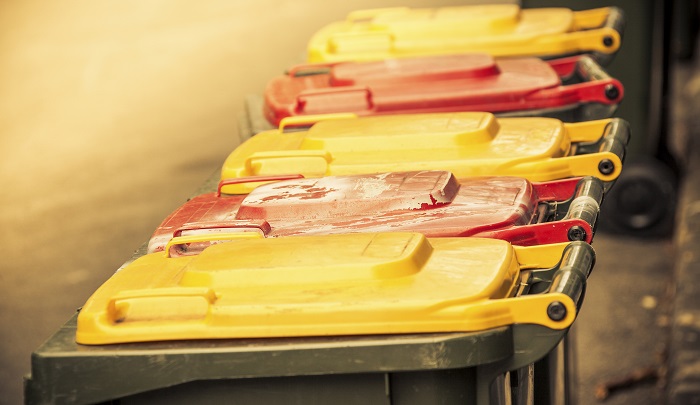The big recycling mistake
November 18, 2020
COVID-19 has meant changes to how we live, to what we buy, and importantly, changes to what we throw away.
In fact, during lockdown Australian households have thrown out 10% more rubbish and recyclables into our bins.* It may seem great that we’re recycling more but when our bins are full of items that shouldn’t be there, this causes big problems for our recycling systems. So, what’s one of the biggest offenders? It’s soft plastics.
What are soft plastics?
Many of us may not realise it, but soft plastics are not welcome in recycling bins as they contaminate the other recyclables. Soft plastics includes bread bags, biscuit wrappers, pasta bags, the wrapping around paper towels and toilet paper, postal and delivery sacks, and plastic shopping bags. Basically, if you can scrunch it in your hand, then it’s soft plastic and shouldn’t go in the recycling bin.How should I recycle soft plastics?
It involves a bit more effort, but soft plastics can be recycled—just not through your home bins. All you need to do is take them to your local Coles or Woolworths supermarket, and there should be a dedicated soft plastics recycling bin available.Give these plastic free ideas a go
Single use plastic can be found everywhere, but the news is not all bad. There are numerous things you can do to reduce the plastic in your household. Try some of these ideas on for size.
- Everyone knows to take reusable bags to the supermarket now, but what about the single use bags in the produce section? Get in the habit of taking reusable produce bags with you when you shop.
- Like using zip lock bags? You can now buy reusable zip lock bags which are perfect for the microwave, freezer and dishwasher.
- Beeswax wraps have been around for a while now and are the perfect alternative to cling wrap. You can buy them everywhere now but why not make your own?
- If you have the time and the skill, go back to basics and start making more food from scratch to avoid excess plastic packaging.
- Bypass the supermarket and get the farm to deliver to you. There are multiple companies that will deliver fresh fruit and veg straight to your door without all the excess plastic.
Need some new ideas for your super?
We’ve got lots of ideas on how to make your super work harder for you, just see the ways you can take control. You can also give us a call on 1300 033 166 and speak with an Adviser from TelstraSuper Financial Planning who can talk to you about your insurance, investment choice or boosting your super. General and simple personal advice about your TelstraSuper account is available over the phone. There's no additional cost for our phone based advice as this is included in your TelstraSuper membership.
* https://www.acor.org.au/uploads/2/1/5/4/21549240/mr_covid_consumption_changes_causing_new_plastics_problems_final.pdf
